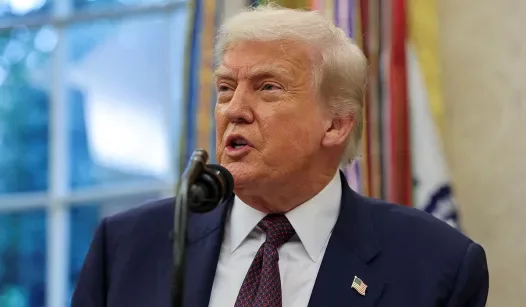As Labor Day approaches, it’s crucial to reflect on the true spirit of the holiday, which is meant to honor the hard work and dedication of laborers across the nation. However, this year, the conversation is shifting to the role of unions, particularly federal worker unions, and their influence on the workforce and government efficiency.
Former President Donald Trump has reignited the debate by voicing his concerns about the power and practices of these unions. His stance raises important questions about the balance between employee rights and the need for accountability within the federal workforce. Critics argue that unions can sometimes prioritize their interests over those of the workers they represent, leading to inefficiencies and resistance to necessary reforms.
The federal workforce is a significant part of the American economy, employing millions in various capacities. Unions have historically played a critical role in advocating for workers’ rights, ensuring fair wages, and improving working conditions. However, as Trump points out, there are instances where union actions may hinder progress, particularly when they resist changes aimed at enhancing productivity and accountability.
One of the primary arguments against the current union structure is that it can create a disconnect between workers and management. When unions become too powerful, they may protect underperforming employees or resist policies that could lead to a more efficient government. This can result in a workforce that is less responsive to the needs of the public and taxpayers.
Moreover, the political dynamics surrounding federal worker unions cannot be ignored. Many unions have strong ties to the Democratic Party, which raises concerns about their influence on policy decisions. This relationship can lead to a situation where union interests overshadow the needs of the broader public, causing frustration among citizens who expect their government to operate effectively and transparently.
Trump’s criticism of federal worker unions aligns with a broader movement advocating for reform in how government employees are managed. Proponents of these reforms argue that a more flexible and accountable workforce is essential for addressing the challenges facing the nation today. By reevaluating the role of unions, there’s potential for creating a more dynamic and responsive federal workforce.
As we celebrate Labor Day, it’s essential to honor the contributions of laborers while also engaging in a thoughtful discussion about the role of unions in today’s economy. Striking a balance between protecting workers’ rights and ensuring government efficiency is key to fostering a productive and accountable workforce.
In conclusion, the conversation sparked by Trump’s comments on federal worker unions is an opportunity for reflection and reform. As we honor the laborers who contribute to our nation, we must also consider how to best support them while ensuring that our government operates effectively for all citizens. The future of labor relations in the U.S. may depend on this delicate balance, making it a critical topic for ongoing discussion.
